- Region and Country
- Horn of Africa
Kenya is considered a haven of stability and a leading economy in the Horn of Africa and East Africa region. However, it also faces the impacts of violent extremism and terrorist threats and hosts a large number of refugees, primarily fleeing conflict and the adverse effects of climate change in South Sudan and Somalia.
We are building upon Kenya's efforts to prevent and counter violent extremism, helping to enhance stability in conflict-prone areas by creating jobs for young people and promoting dialogue between vulnerable communities and local authorities.
We also aim to work in close cooperation with the government and other key stakeholders, such as UNHCR, to provide opportunities for self-reliance while ensuring the protection of refugees generously hosted in Kenya, as well as their host communities.
Related links
National programmes
The specific objectives of the project are: (1) improved health standards for the population in Kalobeyei and surrounding areas; (2) increased food and nutrition security for host com-munities and refugees, as well as strengthened economic resilience and well-being; (3) increased school enrolment of
- Region and Country
- Horn of Africa
- Thematic
- Greater economic and employment opportunities
- Improved governance and conflict prevention
- Strengthening resilience of communities
- Partner
- World Food Programme
- UNICEF
- Food and Agriculture Organization
- United Nations High Commissioner for Refugees
The specific objectives of the project are:(1) To enhance understanding of sources of conflict and exclusion, leading to informed policy and interventions which identify means of addressing development needs and grievances;(2) To provide youth with skills which can be used to improve employment and.
- Region and Country
- Horn of Africa
- Thematic
- Greater economic and employment opportunities
- Improved governance and conflict prevention
- Strengthening resilience of communities
- Partner
- Slovak Agency for International Development
- GIZ
- Royal United Services Institute
- Red Cross Kenya
The overall objective of the action is the operationalisation of the recently adopted Kenya National Strategy to Counter Violent Extremism with particular emphasis on preventative aspects.
- Region and Country
- Horn of Africa
- Kenya
- Thematic
- Improved governance and conflict prevention
- Partner
- National Counter Terrorism Centre
The overall objective of the action is to promote better economic integration and self-reliance of refugees and host communities in the Kakuma and Kalobeyei area through supporting market-led solutions that strengthen and deepen local markets and respond to key development challenges.
- Region and Country
- Horn of Africa
- Thematic
- Greater economic and employment opportunities
- Strengthening resilience of communities
The aim of this project is to enhance the self-reliance of refugees and host communities in Kenya
- Region and Country
- Horn of Africa
- Thematic
- Greater economic and employment opportunities
- Improved migration management
- Strengthening resilience of communities
Regional programmes
The specific objectives of the project are: (I) to strengthen IGAD’s capacity for coordinating and facilitating the implementation of IDDRSI to build resilience, as a means of addressing the root causes of vulnerability, forced displacement and irregular migration; and (II) to promote reform in IGAD
- Region and Country
- Horn of Africa
- Regional Horn of Africa
- Thematic
- Improved governance and conflict prevention
- Strengthening resilience of communities
- Partner
- Intergovernmental Authority on Development
- GIZ
The overall objective is to improve migration management in the region, and in particular to curb the trafficking of human beings and the smuggling of migrants within and from the Horn of Africa.
- Region and Country
- Horn of Africa
- Regional Horn of Africa
- Thematic
- Improved migration management
- Partner
- GIZ
The specific objectives will be to collate, synthesize and disseminate the outcomes of existing and new research and evidence related to instability, irregular migration and forced displacement in the Horn of Africa; to communicate the outcomes of existing and new research and evidence to, and share
- Region and Country
- Horn of Africa
- Regional Horn of Africa
- Thematic
- Other
- Partner
- International Migration Institute, University of Oxford
- Sahan Research
- School of Oriental and African Studies, University of London
The specific objectives of the project are:(I) to support the process of adoption, ratification and domestication of the IGAD Protocols on Free Movement of Persons and on Transhumance by IGAD Member States upon their adoption by IGAD Council of Ministers, along with complementary measures to...
- Region and Country
- Horn of Africa
- Regional Horn of Africa
- Thematic
- Greater economic and employment opportunities
- Improved migration management
- Strengthening resilience of communities
- Partner
- Intergovernmental Authority on Development
- OIT - ILO - Organisation Internationale du Travail - International Labour Organization
The specific objectives are: •To prevent local conflict and mitigate its impact;•To promote economic and private sector development, and greater resilience, particularly among vulnerable groups (e.
- Region and Country
- Horn of Africa
- Regional Horn of Africa
- Thematic
- Greater economic and employment opportunities
- Improved governance and conflict prevention
- Strengthening resilience of communities
- Partner
- GIZ
- United Nations Development Programme
- Intergovernmental Authority on Development
- Vétérinaires Sans Frontières Germany
- PACT
- Danish Refugee Council
The overall objective of the project is the following: to facilitate orderly, safe, regular and rights-based migration through the facilitation of dignified voluntary return and the implementation of development-focused and sustainable reintegration policies and processes.
- Region and Country
- Horn of Africa
- Regional Horn of Africa
- Thematic
- Greater economic and employment opportunities
- Improved migration management
- Partner
- International Organization for Migration
Specific Objective 1: to establish and implement a Monitoring and Learning System which monitors and reports on the overall progress of the EUTF Horn of Africa window against EUTF strategic objectives, Horn of Africa policy priorities and EUTF principles of interventions.
- Region and Country
- Horn of Africa
- Regional Horn of Africa
- Thematic
- Greater economic and employment opportunities
- Improved governance and conflict prevention
- Improved migration management
- Strengthening resilience of communities
- Partner
- Altai Consulting
The intervention logic of the project is that in the context of the Horn of Africa, the sharing of information on irregular migration and associated criminal networks amongst the countries of the Khartoum Process is a conditional requirement to address transnational crime.
- Region and Country
- Horn of Africa
- Regional Horn of Africa
- Thematic
- Improved migration management
- Partner
- Interpol
- Civipol
The following three thematic objectives and one implementation effectiveness objective are identified to achieve the broader goal of peace and stability in the region:I.
- Region and Country
- Horn of Africa
- Regional Horn of Africa
- Thematic
- Improved governance and conflict prevention
- Partner
- Austrian Development Agency
- Intergovernmental Authority on Development
The specific objective is to better equip relevant country agencies to disrupt the traffickers and smugglers of human beings operating in the Greater Horn of Africa through efficient use of financial investigations and anti-money laundering approaches, including on tracing and seizing assets and...
- Region and Country
- Horn of Africa
- Regional Horn of Africa
- Thematic
- Improved governance and conflict prevention
- Partner
- Civipol
The second phase of the Better Migration Management programme aims to improve the management of safe, orderly and regular migration in the region and support national authorities in addressing the smuggling of migrants and the trafficking in human beings within and from the Horn of Africa.
- Region and Country
- Horn of Africa
- Regional Horn of Africa
- Thematic
- Improved migration management
The project's overall objective is to strengthen and implement the IGAD GCR process, thereby providing increased safety and well-being to displaced populations and host communities.
- Region and Country
- Horn of Africa
- Regional Horn of Africa
- Thematic
- Improved migration management
- Strengthening resilience of communities
- Partner
- Intergovernmental Authority on Development
Cross-window programmes
The specific objective is to conduct, synthesize, disseminate and make use of new and existing research on the drivers and dynamics of the root causes of instability, insecurity, irregular migration and forced displacement in West and North Africa and migration routes, and the most successful policy...
- Region and Country
- Cross-window
- Thematic
- Other
- Partner
- ICMPD
- The Global Initiative against Transnational Organized Crime
The overall objective is to increase the efficiency of the Trust Fund, through gender-and-rights-responsive technical assistance for the identification, formulation, evaluation, monitoring of and communication on trust fund interventions, including audits, evaluations/communication actions for this...
- Region and Country
- Cross-window
- Thematic
- Other
The overall objective of the Action is to contribute to strengthen the governance of migration in the region and provide protection and sustainable solutions for migrants and refugees along the Central Mediterranean route.
- Region and Country
- Cross-window
- Thematic
- Improved migration management
- Partner
- International Organization for Migration
- United Nations High Commissioner for Refugees
The overall objective of the action is to promote sustainable development and ultimately contribute to poverty reduction by increasing the availability of trained and qualified high-level professional manpower in West Africa and the Horn of Africa.
- Region and Country
- Cross-window
- Thematic
- Improved migration management
- Partner
- Directorate General for Education and Culture
News & Stories
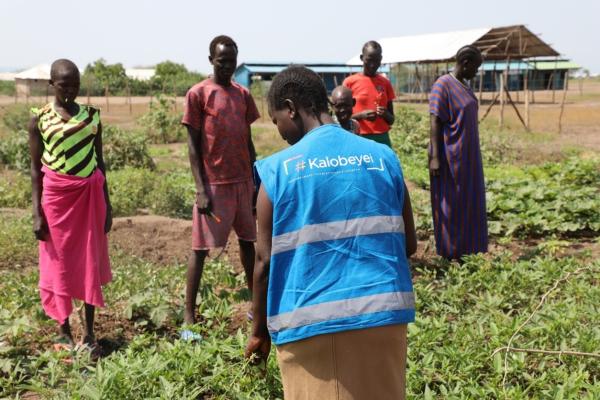
- News article
Originally reliant on food aid as their primary source, refugees now find that this support is dwindling due to the increasing refugee population and decreasing donor funding.
- 4 min read
- Region and Country
- Horn of Africa
- Kenya
- Thematic
- Improved migration management
- Strengthening resilience of communities
- Partner
- Food and Agriculture Organization
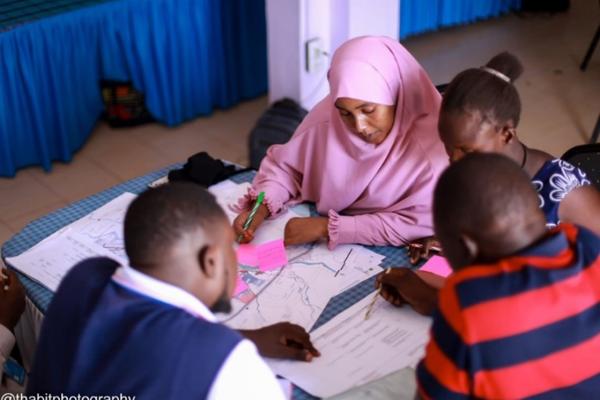
- News article
As we commemorate World Refugee Day, we reflect on what has been achieved through the EUTF-funded program "Enhancing Self-Reliance for Refugees and Host Communities in Kenya," which has been instrumental in reshaping the landscape of refugee camps.
- 4 min read
- Region and Country
- Horn of Africa
- Kenya
- Thematic
- Improved migration management
- Strengthening resilience of communities
- Partner
- United Nations Human Settlements Programme (UN-HABITAT)
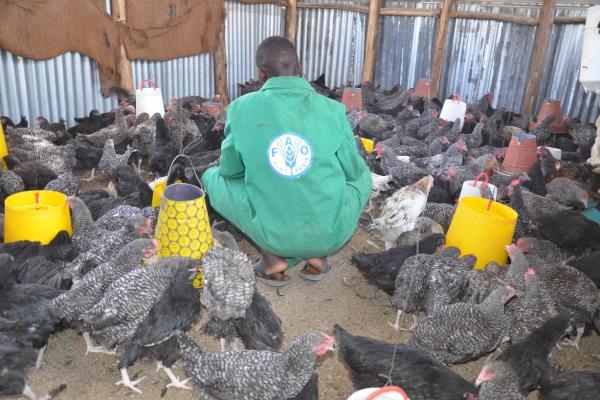
- News article
The Food and Agricultural Organization (FAO) is implementing the EU Trust Fund-funded project in Kalobeyei, which in addition to providing chickens to households, supported the establishment of two poultry production units managed by refugees.
- 5 min read
- Region and Country
- Horn of Africa
- Kenya
- Thematic
- Improved migration management
- Strengthening resilience of communities
- Partner
- Food and Agriculture Organization
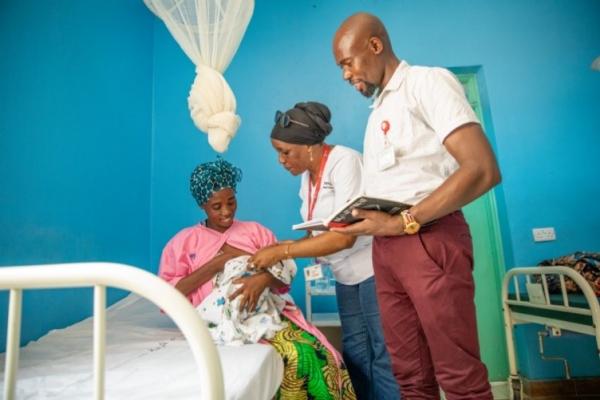
- News article
Funded by the EU Trust Fund, the maternity wing of Natukobenyo Health Center in the Kalobeyei Settlement is ensuring hundreds of expectant mothers deliver safely.
- 3 min read
- Region and Country
- Horn of Africa
- Kenya
- Thematic
- Improved migration management
- Strengthening resilience of communities
- Partner
- United Nations High Commissioner for Refugees
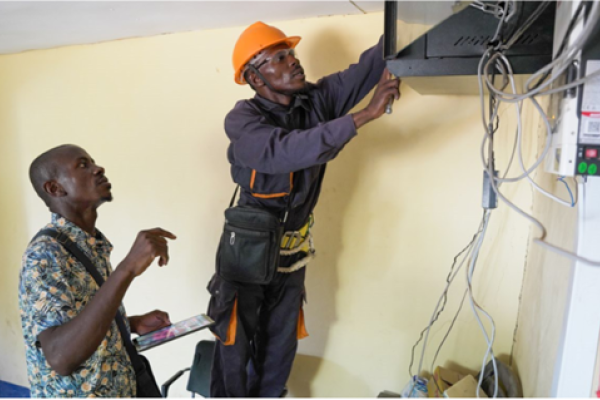
- News article
The Kakuma-Kalobeyei Challenge Fund (KKCF) is changing the perception of refugee-hosting areas by attracting and supporting private sector.
- 3 min read
- Region and Country
- Horn of Africa
- Kenya
- Thematic
- Greater economic and employment opportunities
- Partner
- International Finance Corporation
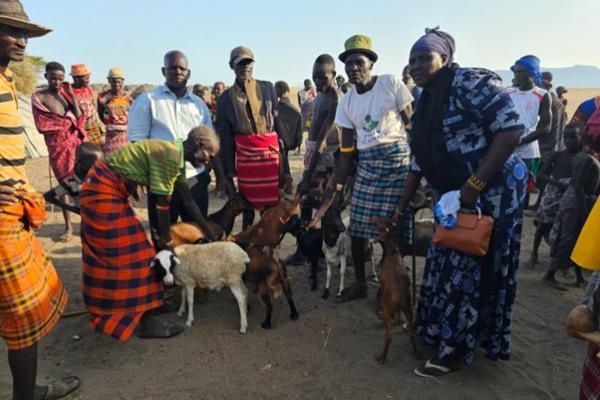
- News article
As we commemorate International Peace Day, celebrated every 21st of September, we turn the spotlight on how the SEEK Project has played a pivotal role in fostering peace and harmony in cross-border regions.
- 3 min read
- Region and Country
- Horn of Africa
- Ethiopia
- Kenya
- Thematic
- Improved governance and conflict prevention
- Partner
- PACT
- Strategies for Northern Development
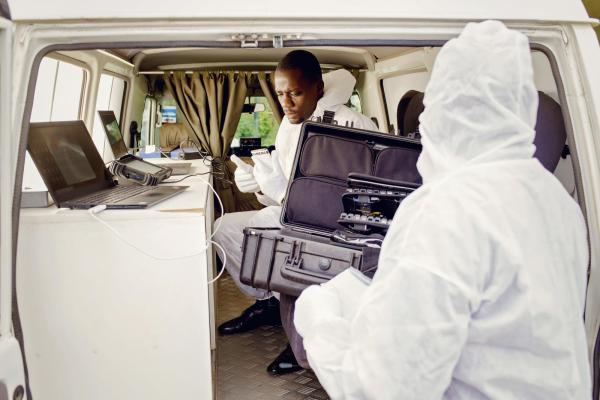
- News article
In Kenya, the national Anti-Human Trafficking and Child Protection Unit (AHTCPU) rescues approximately 300 children every year from the clutches of human trafficking.
- 3 min read
- Region and Country
- Horn of Africa
- Kenya
- Thematic
- Improved migration management
- Partner
- GIZ
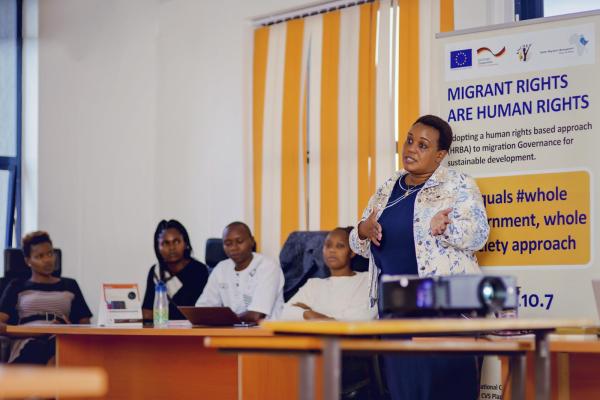
- News article
Alone in a foreign country, migrants face myriad challenges such as the lack of family support, language barriers and missing access to information and services.
- 4 min read
- Region and Country
- Horn of Africa
- Kenya
- Thematic
- Improved migration management
- Partner
- GIZ

